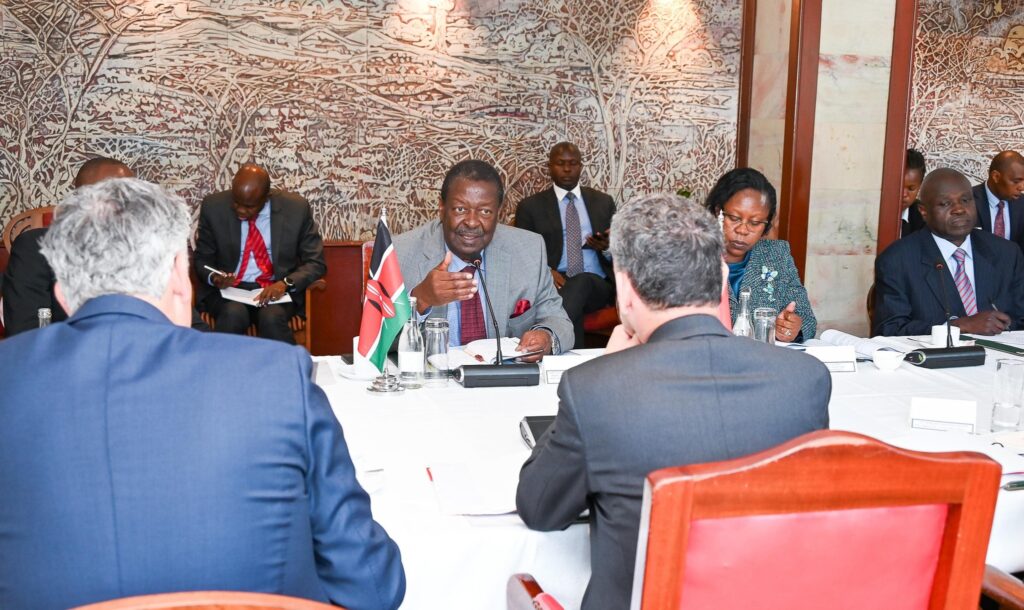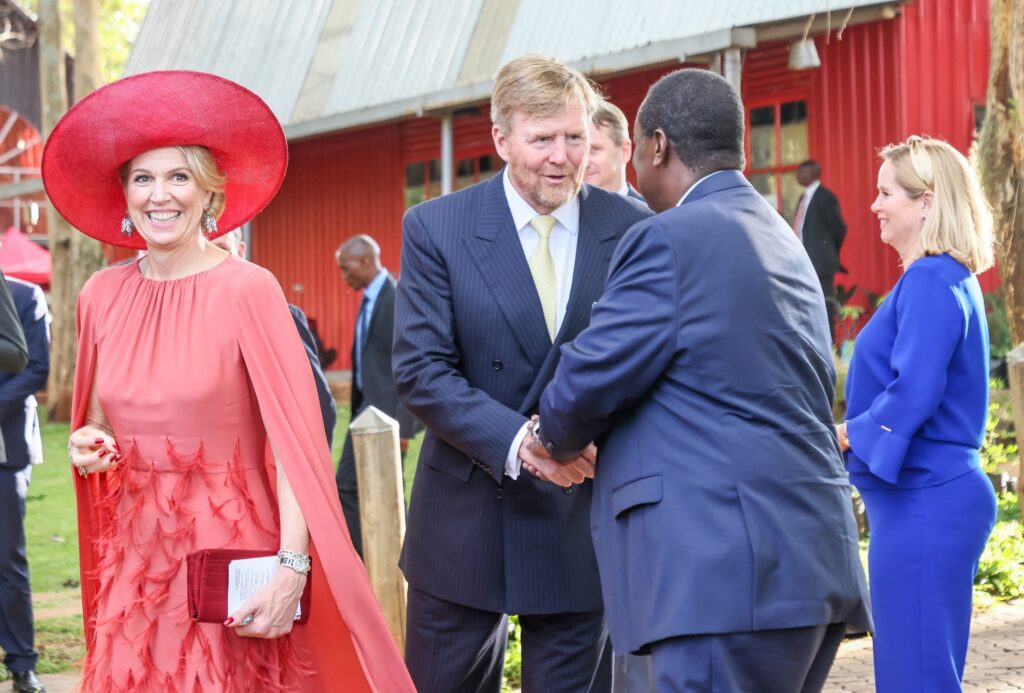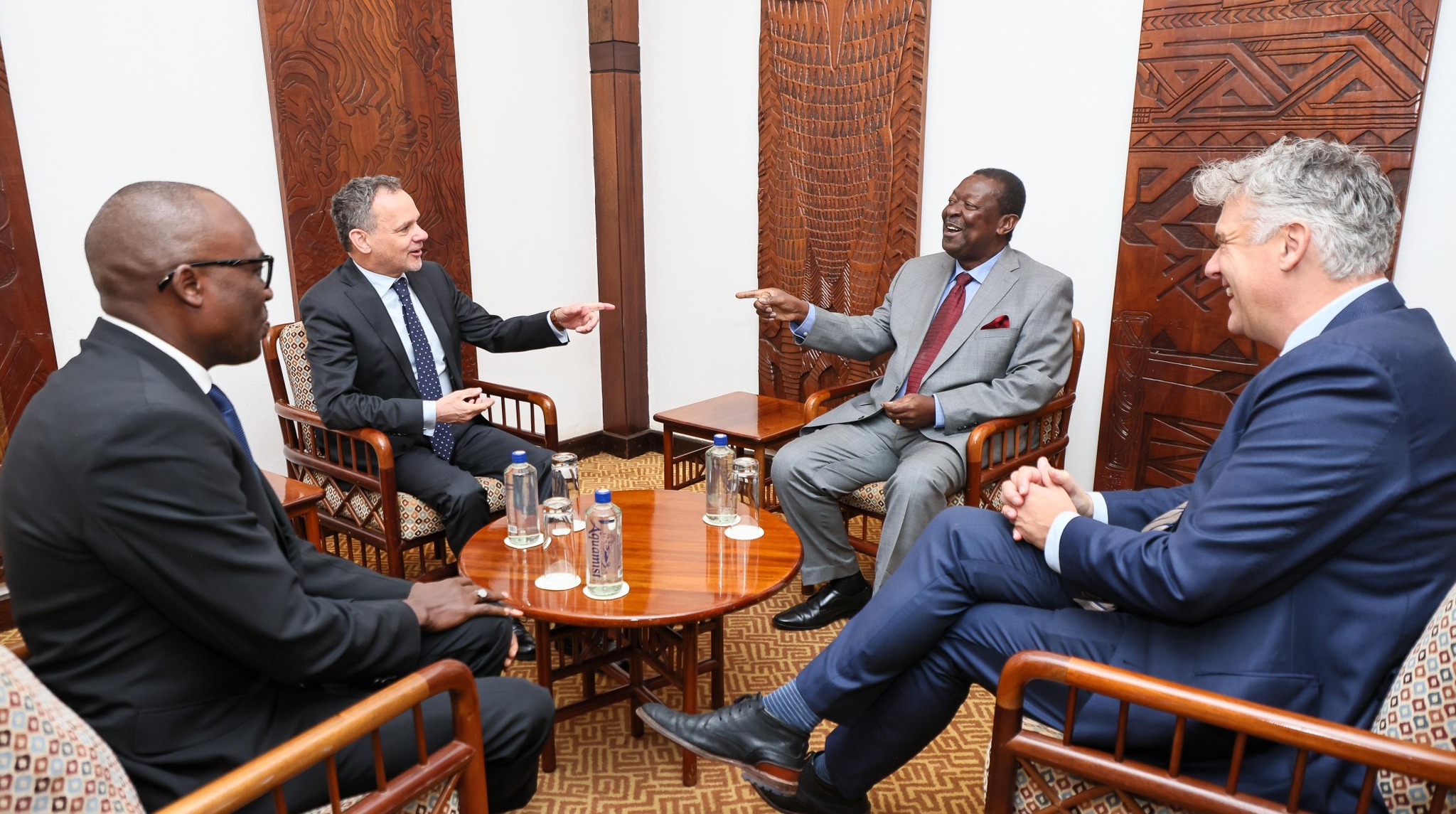In a recent high-profile visit, Kenya hosted His Majesty King Willem-Alexander and Queen Máxima of the Netherlands, marking the Dutch royal couple’s first official state visit to Kenya. The visit was characterized by a broad agenda aimed at reinforcing bilateral ties, expanding economic cooperation, and fostering mutual interests in areas ranging from trade to climate action. While the event celebrated the deepening of diplomatic relations, it was not without controversy, as human rights concerns in Kenya also took center stage.
Economic Cooperation and Trade Relations

The visit underscored the longstanding and dynamic trade relationship between Kenya and the Netherlands. Notably, the Netherlands remains Kenya’s second-largest export destination in Europe and its largest in the European Union. In 2023 alone, Kenya exported goods worth over 75 billion Kenyan Shillings to the Netherlands.
The economic agenda emphasized the potential of Dutch investment in Kenya. Over 90 Dutch investors accompanied the royal delegation, showcasing strong interest in opportunities within Kenya’s burgeoning sectors such as agriculture, logistics, and renewable energy. The two nations agreed to further leverage the Kenya-EU Economic Partnership Agreement to boost Kenya’s access to the EU market, particularly in horticulture.
A highlight of the economic collaboration is the Cool Logistics Corridor project, aimed at enhancing the transport of flowers and horticultural products via sea freight. This initiative will significantly reduce transportation costs and carbon footprints, aligning with both nations’ commitments to sustainable development and green growth. The visit to Naivasha’s inland container terminal and flower farms by the Dutch royals underscored the practical significance of this initiative.https://shorturl.at/IAh7y
Furthermore, the robust presence of over 150 Dutch companies operating in Kenya signifies the longstanding confidence Dutch investors have in the Kenyan market. This presence is a testament to the conducive investment climate in Kenya, and both governments committed to creating more opportunities for public-private partnerships that drive innovation and job creation.https://shorturl.at/EiSAc
Climate Action and Sustainability
Climate change and environmental conservation featured prominently in the discussions. The Netherlands reaffirmed its support for climate adaptation projects in Kenya, particularly under the Financing Locally Led Climate Action program in Marsabit, Isiolo, and Garissa counties. These projects aim to strengthen local communities’ resilience to the adverse impacts of climate change by investing in water infrastructure, renewable energy, and climate-smart agriculture.
Both countries pledged to intensify cooperation on reducing greenhouse gas emissions, enhancing resilience, and promoting climate-smart agriculture. They also called for a more inclusive global climate financing framework that better supports developing nations. The emphasis on green growth, technology transfer, and sustainable development highlighted a shared vision for a low-carbon future, where economic progress is achieved without compromising environmental integrity.
Multilateral Cooperation and Peace Building

The leaders acknowledged the importance of multilateralism and a rules-based international order. They reiterated commitments to the United Nations Charter principles, including the respect for sovereignty and human rights. The concurrent membership of Kenya and the Netherlands in the UN Human Rights Council was seen as an opportunity for collaboration in promoting human rights globally.
Given the conflicts in regions such as Sudan, South Sudan, Somalia, and the Democratic Republic of Congo (DRC), Kenya reaffirmed its nonpartisan stance and commitment to peace initiatives. Nairobi’s role as a hub for dialogue and conflict resolution was highlighted, reflecting Kenya’s strategic diplomatic influence in East Africa. Prime Cabinet Secretary Musalia Mudavadi emphasized that Kenya would continue to be a constructive interlocutor in peace processes and highlighted Kenya’s involvement in the East African Community and SADC initiatives aimed at stabilizing the region.
The symbolic location of the diplomatic talks – the “Amani Room” – added depth to the discussions. The room, which hosted negotiations that led to Kenya’s 2010 Constitution, embodies the country’s commitment to dialogue, reconciliation, and peaceful conflict resolution. Mudavadi used the setting to underline Kenya’s enduring commitment to dialogue in resolving conflicts.
Human Rights Concerns and Accountability
Amid the celebration of enhanced ties, the visit sparked controversy. Reports surfaced that the Dutch government received around 300 emails from Kenyans urging reconsideration of the royal visit due to human rights violations in Kenya, especially in light of recent abductions and protests against the 2024 Finance Bill. Concerns were raised about the Kenyan government’s handling of peaceful protests, allegations of forced disappearances, and excessive use of force.
Dutch Minister Kasper Welkamp addressed these concerns directly, emphasizing that democracy is an ongoing process and acknowledging the issues raised by the events of mid-2024. He highlighted the maturity of Kenya-Netherlands relations that allow open dialogue on such sensitive issues. Human rights, rule of law, and accountability were key topics in bilateral discussions, with both nations agreeing on the importance of maintaining democratic principles and legal frameworks.
Kenyan Prime Cabinet Secretary Musalia Mudavadi reaffirmed Kenya’s commitment to the rule of law, citing mechanisms such as the Independent Police Oversight Authority (IPOA) to investigate any security transgressions. He emphasized that any violations by security agencies would be subjected to judicial scrutiny, with the government supporting due process. Mudavadi also stressed the importance of responsible civic engagement, urging citizens to exercise their rights within the confines of the law to avoid violence and property destruction.
Security Concerns: Regional and Domestic
Security in the Horn of Africa, including a recent militia attack on the Somali president, raised alarms about the volatility of the region. Kenya reiterated its dedication to peace-building, citing ongoing involvement in initiatives in South Sudan, Somalia, and the DRC. Mudavadi stressed that Kenya remains a constructive player in regional stability, leveraging its historical experience in conflict resolution.
Kenya’s strategic location and its reputation as a diplomatic hub make it an essential player in regional peace efforts. Its involvement in multilateral peace initiatives underscores its role as a stabilizing force, with an emphasis on conflict prevention, mediation, and post-conflict reconstruction.
Diaspora and Legal Challenges Abroad
An unexpected topic discussed during the press briefing was the case of a Kenyan woman facing the death penalty in Vietnam for drug trafficking. The Kenyan government expressed concern over such incidents and highlighted efforts to engage with foreign governments for potential mitigation. Mudavadi stressed that while the government would advocate for fair treatment, it also expected Kenyan citizens to adhere to the laws of host countries.
Mudavadi revealed that approximately 1,000 Kenyans are incarcerated globally for various offenses, including drug trafficking. He stressed the importance of responsible behavior by Kenyan citizens abroad and the government’s commitment to prevent the country from becoming a conduit for illegal activities. Negotiations are ongoing to establish agreements for prisoner exchanges and legal cooperation.
The issue raised questions about security at Kenya’s own ports of entry and the effectiveness of surveillance. Mudavadi assured that Kenya is intensifying security measures and monitoring at airports to curb drug trafficking and other illicit activities. He called on the media and civil society to educate the public about the risks of engaging in criminal activities abroad, emphasizing that legal systems in foreign countries operate independently and often carry harsh penalties.
A Partnership for the Future
Despite the challenges, the visit reaffirmed a robust Kenya-Netherlands partnership built on shared values of sustainability, innovation, and multilateralism. Both countries expressed a desire to expand cooperation in trade, climate action, security, and human rights, aiming to unlock opportunities for future generations.
As global dynamics shift, the importance of alliances between stable, forward-looking nations like Kenya and the Netherlands becomes increasingly vital. The royal visit, while drawing attention to contentious issues, ultimately served as a platform for deepening ties and addressing mutual concerns through diplomacy and collaboration.
The state visit not only reinforced diplomatic and economic bonds but also underscored the mutual commitment to upholding democratic values and human dignity. Moving forward, the success of this partnership will hinge on continued dialogue, transparency, and a shared vision for a prosperous and peaceful future.
